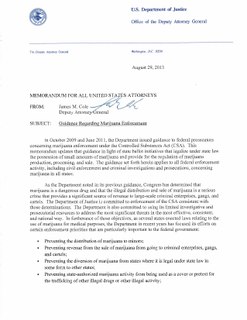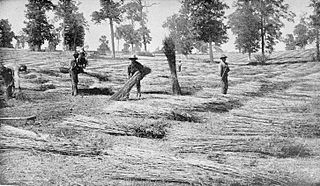Related Research Articles
The National Organization for the Reform of Marijuana Laws is a non-profit organization based in Washington, D.C., that advocates for the reform of marijuana laws in the United States regarding both medical and non-medical use. According to their website, NORML supports "the removal of all penalties for the private possession and responsible use of marijuana by adults, including cultivation for personal use, and casual nonprofit transfers of small amounts" and advocates for "the creation of a legal and regulatory framework for marijuana's production and retail sale to adults". NORML also has a sister organization, NORML Foundation, that focuses on educational efforts and providing legal assistance and support to people affected negatively by current marijuana laws. Organizations that operate under the NORML banner in other countries include NORML New Zealand, NORML Ireland, NORML Canada, NORML UK, NORML South Africa, and NORML France.

Proposition 215, or the Compassionate Use Act of 1996, is a California law permitting the use of medical cannabis despite marijuana's lack of the normal Food and Drug Administration testing for safety and efficacy. It was enacted, on November 5, 1996, by means of the initiative process, and passed with 5,382,915 (55.6%) votes in favor and 4,301,960 (44.4%) against.
Drug czar is an informal name for the person who directs drug-control policies in various areas. The term follows the informal use of the term czar in U.S. politics. The 'drug czar' title first appeared in a 1982 news story by United Press International that reported that, "[United States] Senators ... voted 62–34 to establish a 'drug czar' who would have overall responsibility for U.S. drug policy." Since then, several ad hoc executive positions established in both the United States and United Kingdom have subsequently been referred to in this manner.

Federalism in the United States is the constitutional division of power between U.S. state governments and the federal government of the United States. Since the founding of the country, and particularly with the end of the American Civil War, power shifted away from the states and toward the national government. The progression of federalism includes dual, cooperative, and new federalism.

In the United States, the non-medical use of cannabis is legalized in 18 states and decriminalized in 13 states as of June 2021. Decriminalization refers to a policy of reduced penalties for cannabis offenses, typically involving a civil penalty for possessing small amounts, instead of criminal prosecution or the threat of arrest. In jurisdictions without penalty the policy is referred to as legalization, although the term decriminalization is sometimes used for this purpose as well.

The legal history of cannabis in the United States pertains to the regulation of cannabis for medical, recreational, and industrial purposes in the United States. Increased restrictions and labeling of cannabis as a poison began in many states from 1906 onward, and outright prohibitions began in the 1920s. By the mid-1930s cannabis was regulated as a drug in every state, including 35 states that adopted the Uniform State Narcotic Drug Act. The first national regulation was the Marihuana Tax Act of 1937.

The use, sale, and possession of cannabis over 0.3% THC in the United States, despite laws in many states permitting it under various circumstances, is illegal under federal law. As a Schedule I drug under the federal Controlled Substances Act of 1970, cannabis over 0.3% THC is considered to have "no accepted medical use" and have a high potential for abuse and physical or psychological dependence. Cannabis use is illegal for any reason, with the exception of FDA-approved research programs. However, individual states have enacted legislation permitting exemptions for various uses, including medical, industrial, and recreational use.

In the United States, the use of cannabis for medical purposes is legal in 36 states, four out of five permanently inhabited U.S. territories, and the District of Columbia, as of May 2021. Twelve other states have more restrictive laws limiting THC content, for the purpose of allowing access to products that are rich in cannabidiol (CBD), a non-psychoactive component of cannabis. There is significant variation in medical cannabis laws from state to state, including how it is produced and distributed, how it can be consumed, and what medical conditions it can be used for.
Chris Bartkowicz is a state-licensed medical marijuana care-giver who was raided and arrested on the order of Denver area DEA agent Jeffrey Sweetin on February 12, 2010 after accepting an invitation by 9NEWS to do an interview about being a Colorado medical marijuana care-giver.
Wo/Men's Alliance for Medical Marijuana (WAMM) is a not-for-profit medicinal cannabis dispensing collective located in Santa Cruz, California. WAMM was founded in 1993 by Valerie Leveroni Corral and her then-husband Michael Corral. Valerie Corral is also the Executive Director of Raha Kudo: Design for Dying Project, a non-profit corporation that provides education and research to support persons facing death and their caregivers. Members of WAMM receive organic medicinal cannabis at cost while volunteers trade work for cannabis. There is a compassion program for those unable to afford the full cost of medical cannabis. WAMM was the first medical marijuana collective to receive non-profit status from the United States Government.

The legal history of cannabis in the United States began with state-level prohibition in the early 20th century, with the first major federal limitations occurring in 1937. Starting with Oregon in 1973, individual states began to liberalize cannabis laws through decriminalization. In 1996, California became the first state to legalize medical cannabis, sparking a trend that spread to a majority of states by 2016. In 2012, Washington and Colorado became the first states to legalize cannabis for recreational use.

The Donald Trump administration took positions against marijuana and against the easing of laws regarding marijuana. Although Trump indicated during his 2016 presidential campaign that he favored leaving the issue of legalization of marijuana to the states, his administration subsequently upheld the federal prohibition of cannabis, and Trump's 2021 fiscal budget proposal included removing protections for state medical marijuana laws. In 2018, the administration rescinded the 2013 Cole Memorandum, an Obama-era Justice Department policy that generally directed federal prosecutors not to pursue marijuana prosecutions in states where marijuana is legal as a matter of state law.

The Cole Memorandum was a United States Department of Justice memorandum issued August 29, 2013, by United States Deputy Attorney General James M. Cole during the presidency of Barack Obama. The memorandum, sent to all United States Attorneys, governed federal prosecution of offenses related to marijuana. The memo stated that given its limited resources, the Justice Department would not enforce federal marijuana prohibition in states that "legalized marijuana in some form and ... implemented strong and effective regulatory and enforcement systems to control the cultivation, distribution, sale, and possession of marijuana," except where a lack of federal enforcement would undermine federal priorities.
During the administration of American President Jimmy Carter (1977–1981), the United States gave further consideration to the decriminalization of cannabis (marijuana), with the support of the president. However, law enforcement, conservative politicians, and grassroots parents' groups opposed this measure. The net result of the Carter administration was the continuation of the War on Drugs and restrictions on cannabis, while at the same time cannabis consumption in the United States reached historically high levels.
The cannabis policy of the Reagan administration involved affirmation of the War on Drugs, government funded anti-cannabis media campaigns, expanded funding for law enforcement, involvement of the U.S. military in interdiction and eradication, reduction in emphasis in drug treatment, and creation of new Federal powers to test employees and seize cannabis-related assets.
During the administration of American President Lyndon B. Johnson (1963–1969), the government made moves to reconsider cannabis law enforcement in the nation, including a more treatment-based approach to drug use. However, Johnson was saddled with controversies regarding the Vietnam War and internal national tensions, and was not able to make major changes to cannabis policy before declining to run for a second term in 1968. During the Johnson administration, cannabis usage was an issue of concern both in the youth counterculture as well as among American troops serving in the Vietnam War.
During the administration of American President George H. W. Bush (1989–1993), the United States largely followed the precedents set by the cannabis policy of the Reagan administration, including prosecution of the War on Drugs.

Hemp in the United States was a legal crop in the 18th and 19th centuries. A ban was issued on the substance in the 20th century, and returned as a legal crop in the 21st century. By 2019, the United States had become the world's third largest producer of hemp, behind China and Canada.

U.S. President Joe Biden stated in February 2021 that his administration will pursue cannabis decriminalization as well as seek expungements for people with prior cannabis convictions.
References
- ↑ "Barack Obama 'to overturn' Bush-era cannabis policy". Daily Telegraph. 2009-10-19. ISSN 0307-1235 . Retrieved 2018-04-27.
- ↑ "Obama: Marijuana Users Not High Priority". ABC News. 2012-12-26. Retrieved 2018-04-27.
- ↑ Lynch, Sarah N. (January 4, 2018). "Trump administration drops Obama-era easing of marijuana prosecutions". Reuters . Retrieved April 26, 2018.
- ↑ Scherer, Michael. "What Is President Obama's Problem With Medical Marijuana?". Time. ISSN 0040-781X . Retrieved 2018-04-27.
- ↑ Bulman-Pozen, Jessica; Metzger, Gillian E. (2016-07-01). "The President and the States: Patterns of Contestation and Collaboration under Obama". Publius: The Journal of Federalism. 46 (3): 308–336. doi: 10.1093/publius/pjw008 . ISSN 0048-5950.

